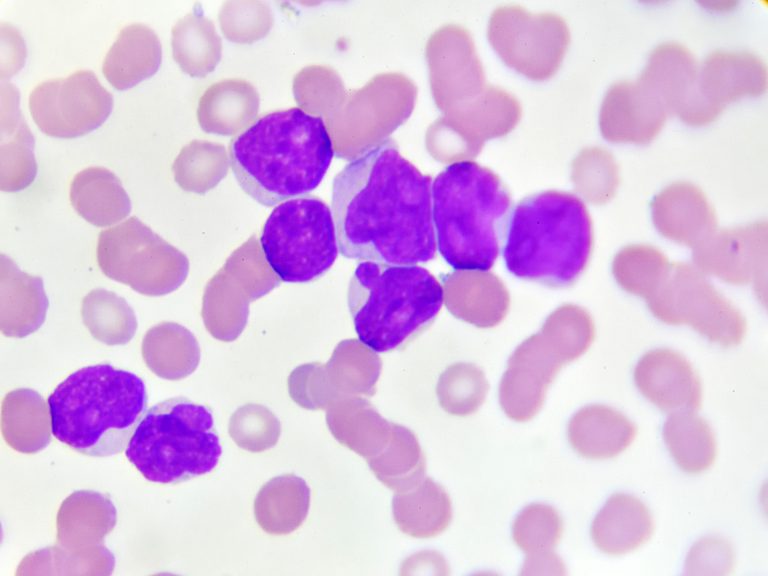
Research carried out at Cold Spring Harbor Laboratory shows that a phosphatase protein known as SCP4 is essential for the survival of acute myeloid leukemia (AML) cancer cells. The research team hope their discovery will lead to new therapeutic options for this aggressive form of blood cancer.
AML is caused by poor differentiation and uncontrolled production of young myeloid cells in the blood. It affects the myeloid cells in the blood and has a fairly poor prognosis, with 5-year survival rates ranging from 10–35% depending on the age at onset. Older people tend to have a worse outcome. Treatment options are fairly limited with only a few targeted therapies available.
Cold Spring Harbor Laboratory professor Christopher Vakoc and former graduate student Sofya Polyanskaya decided to investigate the cellular pathways AML needs for survival.
Phosphatase proteins regulate cell activity by removing phosphate molecules from other proteins, whereas kinases add phosphates back onto proteins. The number of active phosphates a protein has can be used as a guide to its activity level.
Polyanskaya and Vakoc discovered that in the case of AML cells, the phosphatase SCP4 (encoded by the gene CTDSPL2) pairs with one of two kinases called STK35 and PDIK1L.
This phosphatase-kinase activity loop seems to be needed for AML cells to survive. When CTDSPL2 was inactivated in an AML cancer cell line in the lab, the AML cells died.
“SCP4…is one of the least-characterized human phosphatases, with yet-to-be-determined roles in human cancer,” write Polyanskaya and colleagues in the journal Cell Reports.
“Despite belonging to a potentially druggable family of proteins, it has yet to be determined whether any human cancers rely on SCP4 for disease initiation or progression.”
While it is early stage, this study changes that and shines a light on a potential new target for AML therapeutics in the future.
“Additional investigation is required to define whether a therapeutic window exists in AML when targeting this phosphatase,” write the authors.
“An appropriate follow-up to this study would include experiments targeting SCP4 in vivo in transplanted CD34+ cells and in primary human AML cells in vitro and in vivo. Generation of genetically engineered mouse models would also be instrumental in the further development of SCP4 as a therapeutic target.”
They add that while SCP4 seems to be essential for AML cell survival, the exact reasons for this are still unclear and would need to be investigated in further research.
“Other researchers can use this system and tweak some other things to really try and pinpoint the exact pathway. This work underscores the importance of fundamental research for discovering future therapies,” commented Polyanskaya in a press statement.













